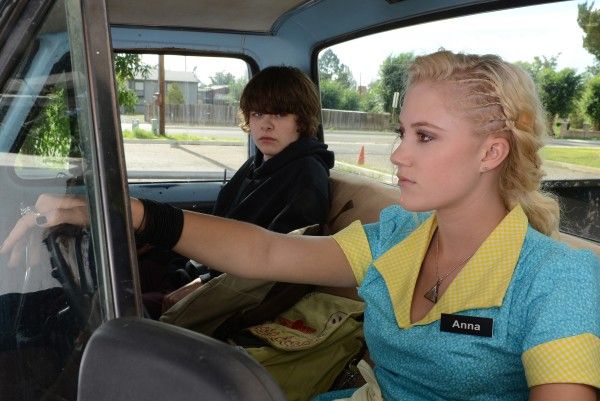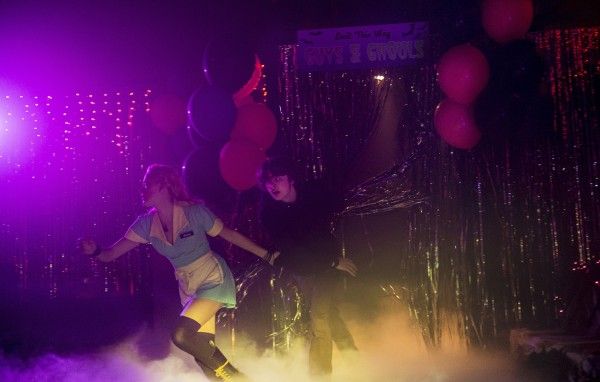[Editor’s Note: Welcome to “Stream This,” our weekly feature where we single out television programs and movies of considerable merit that are available on Netflix, Hulu, Amazon, Crackle, or other streaming services. Look for a new Stream This every week.]
The twenty-something man in the hooded sweatshirt, sporting a slight "aw shucks" Southern accent, says his name is David (Dan Stevens) when he introduces himself to the unfortunate Peterson family, who are at the center of Adam Wingard's galvanizing genre workout The Guest. According to him, he's a soldier and a close friend of the Petersons' late son, who was killed in the line of duty, and his entire being, from his handsome mug and chiseled physique to his generous and obliging attitude, is finely tuned to make him sound entirely sincere and friendly. The Petersons, as well as a variety of their friends and neighbors, are taken in by his act, but Stevens' suavely undermining performance makes it clear to anyone paying attention that a ruse is being weaved here, one that comes tied directly to a cumbersome body count.
The Guest is, first and foremost, an ode to John Carpenter, the brilliant genre filmmaker responsible for classics like Halloween, Christine, Escape from New York, and They Live. This is not only evident in the font and style of the title screen, but in the attuned sense of aesthetic that Wingard practices in nearly every frame of the film. Forget, for the moment, that most horror films are shot lazily or strictly to hit the beats of the script. Wingard's thoughtful, tailored veneer is, like "David," a deliberate and largely placid facade, hiding not only the ugliness of Stevens' character's actions and intentions but also the dark contours of the recent tragedies that have befallen the Petersons. "David" allows each member of the family to react to, or forget about, the more troubling elements of their lives, from middle-child Anna's (It Follows star Maika Monroe) drug-dealing, if respectful boyfriend to the bullies that plague Luke (Brendan Meyer), her younger brother, to the work woes of paterfamilias Spencer, played by veteran character actor Leland Orser. David solves many of these issues through violence and murder, and its the forgiveness and attraction to his bloody type of retribution and problem solving that Wingard, working from a script by longtime collaborator Simon Barrett, is criticizing.
For Anna especially, David's sexiness and general alpha-male air are similarly hard to resist, and Wingard offers a few subversive images that tap into female attraction rather than male. Though there is some superfluous female nudity in a sex scene between David and Anna's friend, Kristen (Tabatha Shaun), the more purposefully arousing scene involves David emerging with only a towel from the shower, and, in a hilarious bit, he's seen carrying two full kegs by himself into Kristen's party. As subversive and giddily undermining as these elements and the view of violence are, Wingard smartly adds in absurdist plot turns and details that call back to the most delirious of horror films, including a climactic secret-government-project turn that causes one of David's former handlers (Lance Reddick) to go after him. In this, the filmmaker achieves a rare balance between sincere style and self-awareness, clearly acknowledging his influences and the general preposterousness of the narrative without allowing that to give him reason to water down his own style or taut, percussive editing, which he did himself. Even coming off of Wingard's previous film, You're Next, one of the great horror films of this decade, The Guest is a major step forward for the director, an ambitious leap forward in terms of style doubling as a ferocious satire, gleefully picking at America's love-hate relationship to violence and bloodshed.
The Guest is currently streaming on Netflix.




